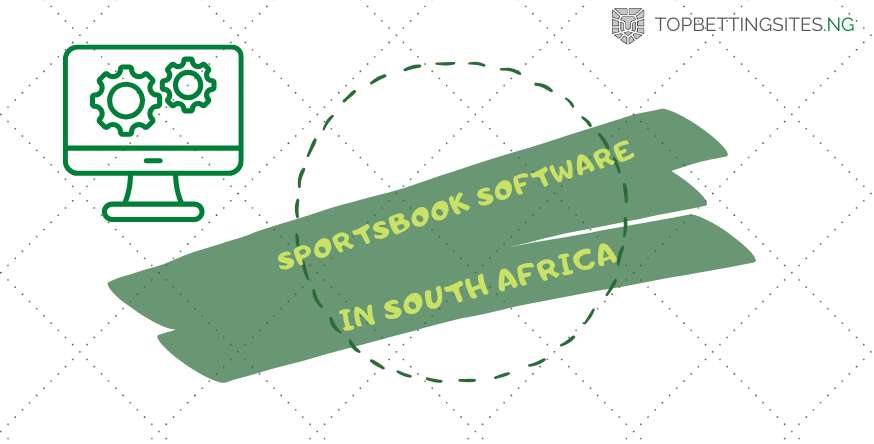Launching or upgrading a betting site in South Africa starts with one core decision: your sportsbook betting software. The right platform doesn’t just display odds and take bets. It keeps you compliant with provincial licensing rules, verifies players under FICA, protects data under POPIA, and delivers the fast local payments South African punters expect. In short, software is the engine room that powers trading, risk control, player engagement, and growth.

This introduction sets the stage for the South African context. Sports wagering is legal when offered by provincially licensed bookmakers, and the competition is intense. That means reliability, localisation, and compliance need to be baked into your technology stack from day one. From football and rugby to cricket and horse racing, your book must deliver accurate markets, sharp uptime during peak matches, and frictionless user journeys on low-to-mid bandwidth connections.
What Is Sportsbook Betting Software?
Sportsbook betting software is the end‑to‑end platform that enables bookmakers to publish odds, accept and settle bets, manage risk, and operate a compliant betting business online. Modern systems are modular: a trading engine, bet settlement, risk management, payments and wallets, bonus tools, CRM, responsible gambling features, and reporting. The best solutions expose clean APIs, so you can integrate third‑party data feeds, payment gateways, identity verification, and marketing tools without rebuilding your core.
Core Modules That Matter
Trading & Odds: Pre‑match and live odds across football, rugby, cricket, tennis, basketball, horse racing, and more. Look for live data latency targets in milliseconds, automated market suspension, and support for multi‑feed reconciliation.
Risk & Liability: Real‑time exposure monitoring across markets, players, and segments; automated stake limits and price shading; configurable risk profiles per sport and competition.
Bet Settlement: Rules engines for voids, dead‑heats, pushes, and rule‑4 in racing; fast settlement from official or trusted data sources; audit‑ready logs.
Promotions & CRM: Free bets, odds boosts, acca insurance, and personalised lifecycles (onboarding, reactivation, VIP); event‑driven triggers for push, email, and on‑site messaging.
Wallet & Payments: Support for local rails such as Instant EFT and cash vouchers, alongside cards and mobile options; automated reconciliations and payout orchestration.
Responsible Gambling: Age and identity checks, deposit and loss limits, time‑outs, self‑exclusion syncing, affordability flags, and RG messaging placement.
Reporting & BI: Provincial‑grade regulatory reports, AML/FICA reporting fields, marketing attribution, and cohort analytics for LTV and churn.
South Africa Compliance Essentials
Provincial licensing and NGB oversight: In South Africa, bookmakers are licensed by provincial gambling boards, with national oversight from the National Gambling Board (NGB). Your software should produce provincial‑specific reports and accommodate rules differences across jurisdictions.
FICA‑aligned KYC: The Financial Intelligence Centre Act sets customer due‑diligence standards. Practically, this means capturing identity documents, proof of address, and beneficial‑ownership data for entities; applying risk‑based verification; and monitoring transactions for suspicious activity.
POPIA data protection: The Information Regulator enforces POPIA. Your vendor should support consent capture, granular data‑subject rights (access, correction, deletion), robust breach logging, and data‑minimisation by design. Appointing and registering an Information Officer, maintaining records of processing, and clear privacy notices are part of the operating model.
Responsible gambling: Age gating (18+), clear T&Cs, accessible limits and self‑exclusion, and visible links to counselling resources. Your front end should make it easy for players to control their play.
Payments South African Bettors Expect
Conversion in South Africa hinges on familiar payment options and fast payouts. Prioritise card rails (Visa/Mastercard), Instant EFT providers (e.g., Ozow, SiD, PayFast, PayGate EFT Secure), and popular cash vouchers (1Voucher, OTT). Offer low‑friction deposit flows, instant balance updates, and transparent withdrawal SLAs. Where possible, pre‑validate bank details and automate payouts to reduce manual touchpoints. For social proof and market context, review local explainers – this resource on online casino software in South Africa.
Technology Foundations
A robust sportsbook platform treats security as a product feature, not a checkbox. It should apply end‑to‑end encryption across data in transit and at rest, restrict access through well‑defined roles, record every administrative action in tamper‑evident audit trails, and undergo regular penetration tests by independent specialists. Recognised frameworks and certifications such as ISO 27001 and independent lab testing like GLI help you verify that these controls are more than promises.
To perform reliably in South Africa’s busiest sporting weekends, the underlying architecture needs to scale elastically. Stateless services and smart caching keep markets responsive when traffic spikes, while carefully planned deployment processes ensure updates ship without downtime. Track the numbers that matter in production—time to first price, bet‑placement latency, settlement lag and hold your provider to an uptime target of around 99.95% or better with transparent incident reports.
Integrations should feel like extensions of your product rather than one‑off projects. Look for clear REST or GraphQL interfaces, event webhooks that let your team automate workflows, and SDKs for web and native apps. Out of the box connectors for score and settlement feeds, KYC providers, payment gateways, and marketing tools shorten time to market and reduce engineering risk.
Conclusion
For South African operators, sportsbook betting software is more than a storefront—it’s the compliance, payments, trading, and player‑safety backbone of your business. Success depends on aligning technology with provincial licensing requirements, embedding FICA‑ready KYC, operationalising POPIA, and offering the local payment choices that drive conversion.
When you evaluate vendors, prioritise battle‑tested platforms with clean APIs, strong security credentials, and hands‑on launch support. A solution from an experienced provider can shorten time to market while raising your bar on reliability, scalability, and responsible gambling controls. With the right software partner and a clear checklist, you can launch confidently, grow sustainably, and deliver the fair, fast, and secure betting experience South African players expect.



